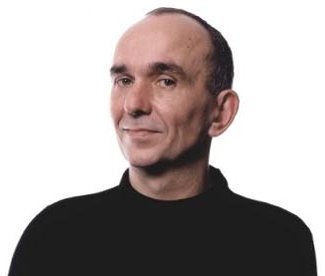Molyneux on building Populous
GDC 2011: Peter Molyneux talks about the building of god game Populous and how he's adapting it into a 256-player multiplayer version as a hobby.
Who was there: Peter Molyneux, who created Populous from his Guildford, UK, office and released it in 1989 on the PC. Since then, Populous has been ported to consoles and handhelds, including the Nintendo DS, while Molyneux himself has gone on to form development studio Lionhead and is now creative director of Microsoft Game Studios, Europe.

What he talked about: "The memory of those days are slightly hazy," Molyneux apologised, blaming substance abuse as he introduced his Populous postmortem. "I had a girlfriend who had a father who suggested I get into business. It was called Taurus Impex, and I shipped baked beans to the Middle East. I received a call from Commodore, who said, 'Would you come up and be our guest for the day?' There was another Taurus who had a networking business, but I chose to lie and took a shipment of 10 Amiga 1000s."
Despite his dishonesty, Molyneux put the computers to good use and created Acquisition, which he described as the ultimate database for the Amiga. "My press persona of overpromising was already blossoming," he joked. After that came a port of Druid 2 for which he got paid £4,000, the renaming of his company to Bullfrog Productions, and the start of production on his first game, which would ultimately become Populous.
"It was about a month into development of the game and all I had was a landscape," said Molyneux. He had the ability for his little people to move round the map, but he was unable to figure out how to make his tiny people hug the walls and therefore perform pathfinding properly. His response was to create a control scheme whereby the player could left-click to raise the land, while right-clicking would lower it. This technique, or "nippling" as Molyneux called it, was a workaround to a problem that he couldn't solve, but it would come to be one of the most memorable features of the game.
Alongside the development of the game, Molyneux invented the Populous Lego board game (which was "rubbish" but still earned the interest of the plastic brick manufacturer) and started seeking publisher deals. Most publishers wouldn't touch the game as there wasn't enough shooting in it, according to Molyneux. However, Bullfrog caught the eye of European publisher Electronic Arts. "I met up with Mark Lewis and David Gardner. I was in no way a contract negotiator, and my weakness was cigarettes. They only had to wait an hour and 40 minutes to get a [favourable] royalty rate of 10 percent, raising to 12 percent after 1m units [sold], and pretty much no investment up front." Despite these unfavourable terms, Molyneux agreed, if only to get outside and have a smoke. The game was completed and submitted for testing, but EA asked for a cheat code so they could skip to the end of the game. "We'd forgotten to put in an end game sequence!" said Molyneux, panicked at the fact that it was supposed to be mere days from completion.
With the game submitted to EA and sent out to reviewers, Molyneux was interested to get an outside opinion. "I'm a great fan of the press--I've always admired them," he said. "One of the magazines that I loved the most was called Ace. Before a journalist gave his final score, he wanted to meet [me]. I became insanely nervous--I didn't have the courage to ask him what he thought. We went down the pub at 10 a.m. and by 4 p.m. I'd thrown up in the toilets. I was going to ask [the reviewer] what the score was. He said, 'I think it's the greatest game I've ever played.' He must never see Populous ever again!" joked Molyneux, fearing the reviewer would reassess the game in the cold light of day.
Populous was a critical success overall and accounted for a third of EA's revenue in the year that it launched. Molyneux went on to release a semi-sequel to the game in the shape of Powermonger the following year, and then a full sequel to Populous the year after. "One of my hobbies at the moment--I am making a 256-player version of Populous," he exclaimed, before going on to show a buggy and unoptimised demo of the game in action.
Quote: "Baked beans are not the most popular choice of food in the Middle East," concluded Molyneux on his first, failed business venture. However, Commodore's confusion over the company's name did give him his break into the games industry. Molyneux also admitted to a fair share of misdemeanours during his GDC session, saying, "I have a cheat in Populous that I used at the national Populous championship in Japan."
Takeaway: Peter Molyneux realised a lot during the making of his first game--the importance of talking to the press, solving programming problems such as pathfinding, and contract negotiation. "Sometimes, games are born out of playing them and tweaking them and finding out what works and what doesn't," he concluded.
Got a news tip or want to contact us directly? Email news@gamespot.com
Join the conversation